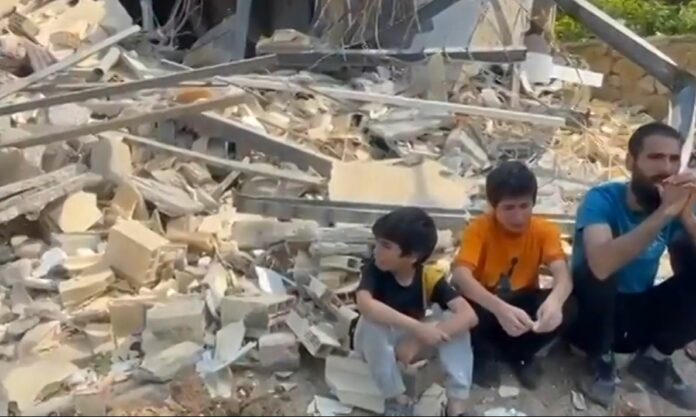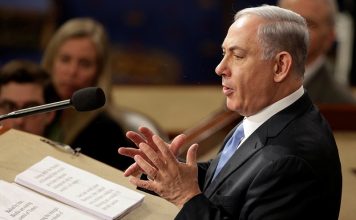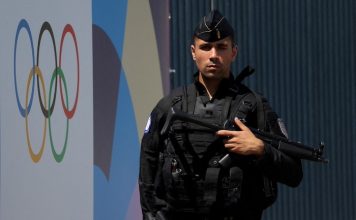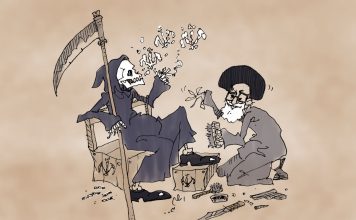The Iranian government cracked down on the Baha’i religious minority over a three-week period starting on July 31. There were 200 reported incidents, according to the Bahá’í International Community (BIC), the official voice of the Bahá’í community, responsible for the defense of the Bahá’ís in Iran. BIC also reports its findings to the United Nations.
According to BIC, actions by Iranian officials included: arbitrary arrests; imprisonment; destruction and confiscation of property; and denying Bahá’í youth access to higher education and universities. More than 100 Bahá’ís were arrested during the crackdown.
“We need to ensure accountability, we need to end impunity, and we need to prevent atrocities,” Dr. Nazila Ghanea, the UN Special Rapporteur on freedom of religion or belief — who is also a Bahá’í — said. “In fact, we need to prevent violations against anybody on the grounds of their religion or belief.”
Stop the destruction and confiscation of Baha’i properties NOW, @khamenei_ir! The Baha’i people in Roshankouh, Semnan and elsewhere must also have access to their properties without obstruction. https://t.co/bI49MLz2df pic.twitter.com/5rEJ2czk6G
— Amnesty Iran (@AmnestyIran) August 23, 2022
Stark concern raised from the Swedish Parliament ?? on recent weeks' escalating crackdown against the #Bahai-s in #Iran. Foreign Minister @AnnLinde is asked to call on Iran for an immediate end to the persecution. Thank you MP Anders Österberg!https://t.co/VKahZ9R99k pic.twitter.com/wbi7IuArX7
— Bahá’í Sverige (@BahaiSverige) August 29, 2022
The rapporteur made the comments during an Aug. 22 webinar hosted by the International Bar Association’s Human Rights Institute (IBAHRI) to coincide with the international day commemorating the victims of acts of violence based on religion or belief. The British lawmaker Fiona Bruce, the UK’s special envoy on freedom of religion or belief, was also a panelist in the webinar.
“The exact reason for this [escalating crackdown] is not known but historically the Iranian government has used the persecution of the Bahá’ís as a scapegoat to deflect from policy failures,” said Padideh Sabeti, the Iranian spokesperson for BIC.
Sabeti also said that officials from Iran’s Intelligence Ministry entered a primary school in Iran and distributed Bahá’í materials among the staff, to incriminate the religious minority.
The officials handed out the material to the staff, “none of whom were Bahá’í. Then they ordered teachers to appear in front of the camera to say Bahá’ís had brought this material to promote their colonial ideology to the children,” Sabeti told Kayhan Life. “The regime is fabricating tales to promote hatred, all under circumstances where the Bahá’ís have no access to the media inside Iran to respond to these accusations and defend themselves.”
Baha’is are Iran’s largest non-Muslim religious minority. They are routinely discriminated against and persecuted by the regime, which does not recognize the Baha’i faith.
An official policy adopted in 1991 by the Supreme Revolutionary Cultural Council and approved by Iran’s Supreme Leader Ayatollah Ali Khamenei allows the state to block Bahá’í “progress and development,” including through heavily restricted access to education and employment. The policy was set out in a confidential government memorandum, and subsequently uncovered by a United Nations special rapporteur.
The pamphlet distribution took place on July 31, the first day of the Iranian government’s most recent crackdown on Bahá’ís in the country.
“Furthermore — as noted by the UN’s special rapporteurs — Iran’s long-term policy is to eradicate the Bahá’í community either by forcing them to leave Iran or putting pressure on them to recant their faith. The periodic surge in the persecution of the Bahá’ís has an accumulative effect to accelerate and to fulfill this policy,” Sabeti added.
@amnesty calls for the authorities in #Iran to stop the ruthless raids of dozens of homes, detentions, the use of electronic ankle bracelets, and threats of imprisonment aimed at the #Bahai community. https://t.co/chhHVvL5G7
— U.S. Baha'i Office of Public Affairs (@USBahaiOPA) August 24, 2022
The Iranian government’s crackdown on Bahá’ís has been condemned by government officials and rights bodies around the world.
Human Rights Watch said Iranian officials had also forced detained Bahá’ís to wear electronic ankle bracelets and claimed those arrested were part of an espionage ring to infiltrate schools with Bahá’í propaganda, in an Aug. 24 press release.
The UN said it was “alarmed” by the escalation against Bahá’ís, in an Aug. 22 press release. It called on Iran’s government “to stop persecution and harassment of religious minorities and end the use of religion to curtail the exercise of fundamental rights.”
Nobel peace prize winner and Iranian judge Shirin Ebadi showed her support for the minority group in an Aug. 4 Instagram post, calling on the UN to hold Iran’s government to account for the alleged violations.
“Universal condemnation by heads of state and governments, prominent individuals, human rights organizations, and international media does work and sends a signal to the Iranian regime. We hope this support becomes stronger and reaches a threshold that deters the Iranian government from harming its Bahá’í citizens,” Sabeti said.








